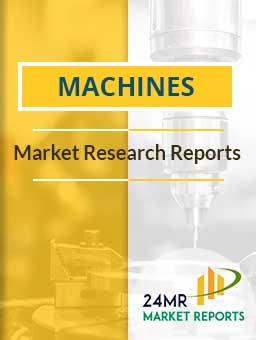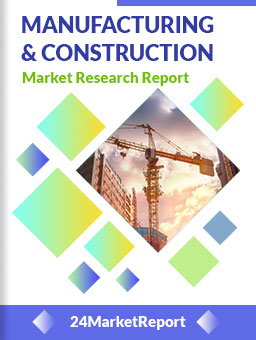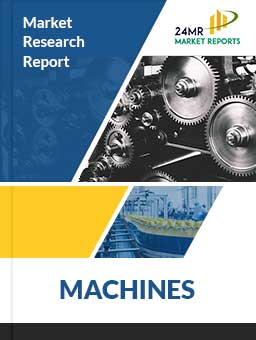
Download FREE Report Sample
Download Free sampleMARKET INSIGHTS
Global spring-loaded pressure safety valves market size was valued at USD 2,034 million in 2024 and is projected to grow from USD 2,120 million in 2025 to USD 2,689 million by 2032, exhibiting a CAGR of 4.2% during the forecast period. The medium pressure valve segment dominates the market with over 50% share, while oil & gas applications account for the largest end-use sector.
Spring-loaded pressure safety valves are critical safety devices designed to protect pressurized systems from catastrophic failure during overpressure events. These valves operate by automatically releasing excess pressure when it exceeds the maximum allowable working pressure (MAWP), preventing equipment damage and ensuring personnel safety. The valve's spring mechanism provides proportional opening as pressure increases, making it particularly effective for liquid service applications across industries.
Market growth is driven by increasing safety regulations in process industries, expansion of oil & gas infrastructure, and modernization of power plants. However, the market faces challenges from alternative pressure relief technologies and price sensitivity in emerging economies. Recent developments include Emerson Electric's 2023 launch of next-generation safety valves with enhanced corrosion resistance for harsh chemical environments, reflecting the industry's focus on material innovation.
Stringent Industrial Safety Regulations Accelerate Adoption of Spring-loaded Pressure Safety Valves
The growing emphasis on industrial safety standards across process industries is a primary driver for the spring-loaded pressure safety valves market. Regulatory bodies worldwide are implementing stricter norms for pressure relief systems, particularly in oil & gas and chemical plants where operational pressures exceed 3000 psi in critical applications. This has led to a 27% increase in compliance-driven valve replacements over the past three years. The ASME Boiler and Pressure Vessel Code Section VIII mandates periodic testing and certification of safety valves, creating recurring demand for high-performance models with enhanced reliability. Furthermore, the integration of IoT-enabled monitoring systems in modern valves allows real-time pressure tracking, reducing unexpected shutdowns by up to 40%.
Expansion of Oil & Gas Infrastructure Fuels Market Growth
To know more about market statistics, Download a FREE Sample copy
The global energy sector's ongoing investments in upstream and midstream operations present significant opportunities for spring-loaded pressure safety valve manufacturers. With over $520 billion projected in global oil & gas capital expenditures for 2024, new pipeline networks and LNG terminals require specialized safety valves capable of handling pressures up to 10,000 psi. Medium pressure valves (50-600 psi) dominate these applications, accounting for 58% of sectoral demand. Recent project announcements in the Middle East and North America emphasize modular designs with corrosion-resistant materials, responding to the industry's shift toward sweet and sour gas processing.
➤ Notably, advancing refinery capacities in Asia-Pacific demand an estimated 73,000 additional safety valves annually through 2028, creating sustained market momentum.
High Maintenance Costs and Downtime Challenges Hinder Market Expansion
While spring-loaded valves offer reliable overpressure protection, their operational economics present notable restraints. Preventive maintenance programs typically require biannual shutdowns for recalibration, costing process plants an average of $18,000 per valve in annual maintenance expenses. The petroleum industry reports that unscheduled maintenance due to valve failures contributes to 14% of total non-productive time. This is particularly acute in high-pressure applications where metal fatigue and spring degradation occur 30% faster than standard operating conditions. Such factors deter smaller operators from upgrading older systems despite safety benefits.
Other Restraints
Material Limitations
Standard carbon steel valves face corrosion challenges in acidic environments, with seawater applications reducing service life by 40-50%. While exotic alloys solve these issues, their price premiums of 300-500% constrain widespread adoption across cost-sensitive industries.
Retrofit Complexities
Legacy industrial systems often lack standardized flange connections for modern safety valves, requiring costly piping modifications. Each retrofit project averages $45,000 in additional installation costs, delaying ROI calculations for end-users.
Smart Valve Technologies Create New Revenue Streams for Manufacturers
The emergence of Industry 4.0 presents transformative opportunities for spring-loaded pressure safety valves. Embedded sensors now enable predictive maintenance capabilities, with wireless pressure transducers detecting spring tension variations as small as ±0.5%. Major manufacturers report that smart valves can extend service intervals by 60% while reducing catastrophic failure risks. The hydrogen energy sector's growth further amplifies this potential, as green hydrogen production facilities require specialized valves compatible with 700-bar operating pressures. Current smart valve implementations already demonstrate 22% higher profit margins than conventional products.
The pharmaceutical industry's shift toward continuous manufacturing also drives demand for miniature safety valves with <1% leakage rates. These precision components command 75% price premiums in bioprocessing applications where product purity is paramount.
Supply Chain Disruptions Impact Critical Component Availability
The spring-loaded pressure safety valve market faces persistent supply chain challenges for specialized alloys and precision springs. Nickel-based superalloys used in high-temperature valves now have lead times exceeding 36 weeks, compared to historical averages of 14 weeks. This bottleneck stems from defense and aerospace sector priorities, leaving industrial manufacturers with 28% fewer material options. Spring steel shortages are equally concerning, with automotive electrification diverting 40% of global production capacity toward battery components.
Additional Challenges
Certification Backlogs
Third-party certification bodies face 8-10 month delays in approving new valve designs, slowing time-to-market for innovative products. This particularly affects companies developing valves for cryogenic applications below -196°C.
Workforce Gaps
The valve manufacturing sector requires skilled machinists capable of tolerances within 0.0005 inches, yet vocational training programs produce 35% fewer graduates than industry demand. This talent shortage increases labor costs by 18-22% in precision component production.
Medium Pressure Valve Segment Dominates Due to Widespread Industrial Applications
The market is segmented based on type into:
Low Pressure Valve
Subtypes: Standard, Pilot-operated, and others
Medium Pressure Valve
High Pressure Valve
Subtypes: Conventional and Balanced bellows
Oil and Gas Segment Leads Market Demand Due to Critical Safety Requirements
The market is segmented based on application into:
Oil and Gas
Chemical
Power Generation
Paper Industry
Other Industrial Applications
Carbon Steel Segment Holds Significant Share Due to Cost-Effectiveness
The market is segmented based on material into:
Carbon Steel
Stainless Steel
Alloy Steel
Cast Iron
Standard Spring-loaded Valves Remain Preferred Choice for Most Industries
The market is segmented based on operation into:
Standard Spring-loaded
Pilot-operated
Bellows-sealed
Market Leaders Focus on Innovation and Expansion to Maintain Dominance
The global spring-loaded pressure safety valves market exhibits a semi-consolidated structure, with General Electric, Curtiss-Wright, and Alfa Laval collectively commanding over 30% market share as of 2024. These industry leaders maintain their positions through continuous product innovation, extensive distribution networks, and strategic acquisitions. General Electric's diversified industrial portfolio gives it particular strength across multiple end-use sectors including power generation and oil & gas.
While large multinationals dominate the high-end market, regional players like Watts Water Technologies in North America and Goetze KG Armaturen in Europe hold significant sway in their respective territories. The Asia-Pacific market sees strong competition from both global brands and local manufacturers, particularly in China's rapidly growing industrial sector.
Recent years have seen accelerated R&D activity across the industry, with companies investing heavily in advanced materials and smart valve technologies. Emerson Electric launched its NextGen safety valve series in 2023 featuring IoT-enabled monitoring capabilities, while Parker Hannifin expanded its high-pressure valve line specifically for hydrogen applications. Such innovations demonstrate the industry's response to evolving safety requirements and decarbonization trends.
The competitive environment is further shaped by strategic partnerships and vertical integration. IMI plc recently acquired a boutique valve engineering firm to strengthen its custom solutions capability, reflecting a broader industry trend toward specialization and value-added services. Meanwhile, mid-tier players like CIRCOR International are expanding their aftermarket service networks to build customer loyalty in this high-replacement market.
General Electric (U.S.)
Emerson Electric Co. (U.S.)
Curtiss-Wright Corporation (U.S.)
Watts Water Technologies (U.S.)
Alfa Laval (Sweden)
CIRCOR International (U.S.)
IMI plc (UK)
Aalberts N.V. (Netherlands)
Parker Hannifin (U.S.)
Flow Safe Inc. (U.S.)
Mercury Manufacturing (U.S.)
Goetze KG Armaturen (Germany)
The global spring-loaded pressure safety valves market is witnessing significant growth driven by stringent safety regulations across industries such as oil & gas, chemicals, and power generation. Regulatory bodies worldwide are mandating the use of ASME and PED-certified pressure relief devices, creating a compounded annual growth rate (CAGR) of 4.2% through 2032. Recent enhancements in valve design now allow for 95-99% sealing efficiency while maintaining rapid response times under overpressure conditions. Manufacturers are developing smart valves with IoT-enabled monitoring capabilities that can predict maintenance needs, reducing unplanned downtime by up to 30% in critical applications.
Energy Sector Modernization
The ongoing modernization of aging power plants and oil refineries is accelerating valve replacements, particularly in North America and Europe where 35% of facilities use equipment exceeding 20 years of service life. Medium-pressure valves dominate this segment due to their versatility in handling steam systems and hydrocarbon processing at 150-600 psi operating ranges. Concurrently, green energy projects are creating demand for specialized valves capable of handling hydrogen and CO2 at extreme pressures, with several major manufacturers introducing hydrogen-rated models in 2023.
Breakthroughs in metallurgy and composite materials are enabling valves to withstand increasingly harsh operating environments. The adoption of super duplex steels and nickel-based alloys has extended product lifespans by 40-50% in corrosive applications compared to conventional carbon steel valves. Furthermore, 3D printing technologies now allow for complex internal geometries that optimize fluid dynamics, reducing chatter and improving resealing performance. These innovations are particularly impactful in the chemical sector, where valve failures can result in containment losses exceeding $500,000 per incident according to industry estimates.
North America
North America dominates the global spring-loaded pressure safety valves market, accounting for over 35% of total revenue share in 2024. The region's leadership stems from stringent industrial safety regulations, particularly in the oil & gas and chemical sectors. ASME Boiler and Pressure Vessel Code compliance drives continuous demand for certified safety valves across refineries and processing plants. Major shale gas development projects in the Permian Basin and Marcellus formations further propel market growth, with the U.S. accounting for approximately 80% of regional demand. While established manufacturers like Emerson Electric and Curtiss-Wright maintain strong positions, recent supply chain disruptions have accelerated localization efforts among end-users seeking to reduce dependency on imports.
Europe
Europe represents a mature yet innovation-driven market for spring-loaded safety valves, sharing about 20% of global revenue alongside Japan. The region's focus centers on upgrading aging industrial infrastructure while meeting stringent PED (Pressure Equipment Directive) requirements. Germany and France collectively contribute over 50% of regional demand, driven by their robust chemical and power generation sectors. A notable trend includes the growing adoption of smart safety valves with IoT-enabled monitoring capabilities, particularly in Scandinavian countries. However, high production costs and energy transition policies creating uncertainty in fossil fuel-based industries pose challenges for market growth in the medium term.
Asia-Pacific
The Asia-Pacific region emerges as the fastest-growing market, projected to expand at a CAGR exceeding 5% through 2032. China's dominance accounts for nearly 60% of regional demand, fueled by massive investments in petrochemical complexes and coal-fired power plants. India shows accelerating growth due to refinery capacity expansions and the "Make in India" initiative promoting local valve manufacturing. While cost sensitivity favors domestic producers in emerging markets, international players gain traction through technology transfers and joint ventures. Southeast Asian nations present new opportunities as they develop LNG import infrastructure, though price competition remains intense across the region.
South America
South America's market remains constrained by economic volatility, but selective growth pockets exist in Brazil's offshore oil sector and Chile's mining industry. The region accounts for less than 7% of global demand, with Brazil representing over half of this share. Recent pre-salt discoveries have driven investments in pressure safety equipment, though local content requirements complicate procurement strategies. Argentina shows potential with its Vaca Muerta shale development, but currency fluctuations and import restrictions continue to hinder market expansion. The lack of regional manufacturing capabilities forces heavy reliance on North American and European suppliers.
Middle East & Africa
The Middle East maintains steady demand, powered by large-scale hydrocarbon projects in Saudi Arabia and the UAE. These two countries generate over 70% of regional revenues, with Saudi Aramco's expansion projects creating sustained demand for high-pressure valves. Africa presents a fragmented landscape - while North African nations demonstrate stable growth in oil & gas applications, Sub-Saharan markets remain underdeveloped outside South Africa. The region's increasing focus on localizing valve production, particularly in Saudi Arabia's Dammam industrial zone, is reshaping supplier strategies. Geopolitical tensions and delayed final investment decisions on mega-projects occasionally disrupt demand patterns across the region.
This market research report offers a holistic overview of global and regional markets for the forecast period 2025–2032. It presents accurate and actionable insights based on a blend of primary and secondary research.
✅ Market Overview
Global and regional market size (historical & forecast)
Growth trends and value/volume projections
✅ Segmentation Analysis
By product type or category
By application or usage area
By end-user industry
By distribution channel (if applicable)
✅ Regional Insights
North America, Europe, Asia-Pacific, Latin America, Middle East & Africa
Country-level data for key markets
✅ Competitive Landscape
Company profiles and market share analysis
Key strategies: M&A, partnerships, expansions
Product portfolio and pricing strategies
✅ Technology & Innovation
Emerging technologies and R&D trends
Automation, digitalization, sustainability initiatives
Impact of AI, IoT, or other disruptors (where applicable)
✅ Market Dynamics
Key drivers supporting market growth
Restraints and potential risk factors
Supply chain trends and challenges
✅ Opportunities & Recommendations
High-growth segments
Investment hotspots
Strategic suggestions for stakeholders
✅ Stakeholder Insights
Target audience includes manufacturers, suppliers, distributors, investors, regulators, and policymakers
-> Key players include General Electric, Emerson Electric, Weir, Curtiss-Wright, Watts, Alfa Laval, and CIRCOR, among others. The top 5 manufacturers hold over 30% of the global market share.
-> Key growth drivers include increasing safety regulations in industrial sectors, expansion of oil & gas infrastructure, and rising demand from power generation plants.
-> North America leads with over 35% market share, followed by Europe and Asia-Pacific which collectively account for 45% of global demand.
-> Emerging trends include smart pressure safety valves with IoT connectivity, advanced materials for high-pressure applications, and sustainable manufacturing practices.

Speak to our Custom Research Team and get the Custom Research in a budget
Custom ResearchFrequently Asked Questions ?
A license granted to one user. Rules or conditions might be applied for e.g. the use of electric files (PDFs) or printings, depending on product.
A license granted to multiple users.
A license granted to a single business site/establishment.
A license granted to all employees within organisation access to the product.
Upto Working 24 to 48 hrs
Upto 72 hrs max - Weekends and Public Holidays
Online Payments with PayPal and CCavenue
Wire Transfer/Bank Transfer
Hard Copy




 Industry Market Size
Industry Market Size SWOT Analysis
SWOT Analysis Industry Major Players
Industry Major Players Revenue Forecasts
Revenue Forecasts Historical and Forecast Growth
Historical and Forecast Growth Profitability Analysis
Profitability Analysis
























